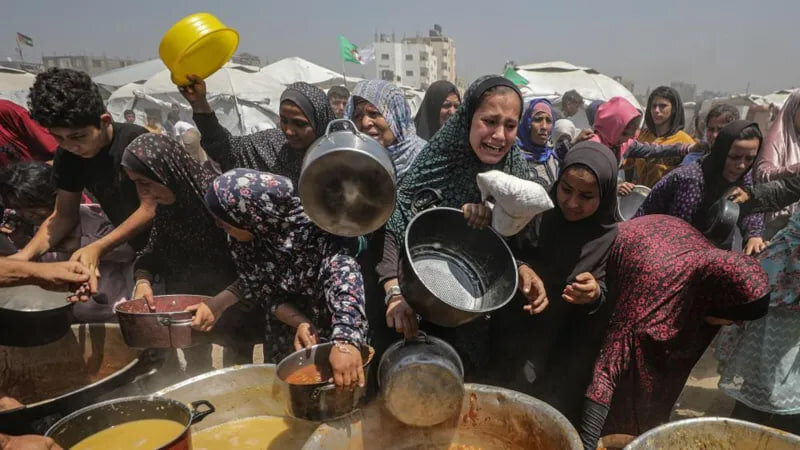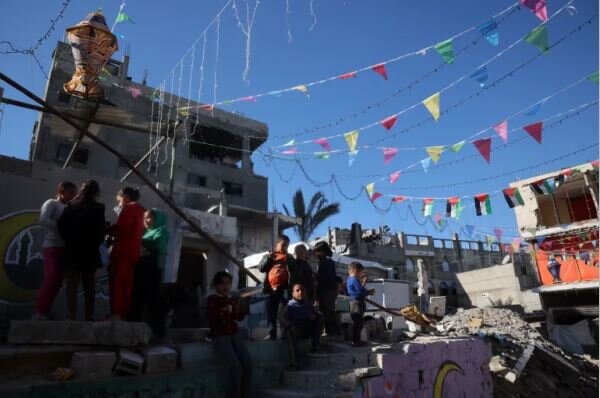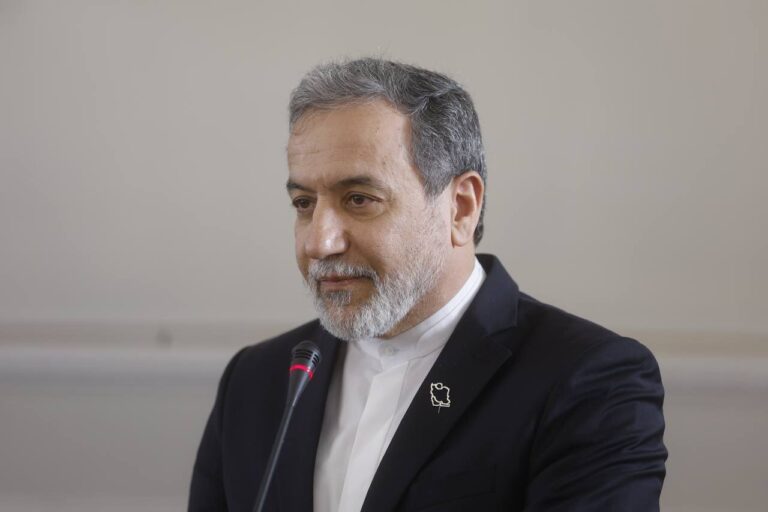WHO Sounds Alarm: Starvation Threatens Lasting Consequences for a Generation of Palestinians
Malnutrition rates are escalating in Gaza, raising alarm bells among health officials about the long-term impact on the region’s youth. The World Health Organization’s representative for the Occupied Palestinian Territory, Rik Peeperkorn, expressed grave concerns over the dire state of children’s health in Gaza during a recent video briefing.
Peeperkorn emphasized that many children he encountered in clinics appeared significantly younger than their actual ages, a troubling indicator of malnutrition. “Without enough nutritious food, clean water, and access to healthcare, an entire generation will be permanently affected,” he stated. This dire situation has implications beyond immediate hunger; it threatens poor health outcomes, stunted growth, and impaired cognitive development among the youth.
Here are some critical points regarding the worsening malnutrition crisis in Gaza:
- Severe Food Shortages: No food has been allowed into Gaza for over two months, exacerbating the humanitarian crisis.
- Health Risks: The lack of nutritious food and clean water places children at risk for chronic health conditions.
- Developmental Concerns: Malnutrition can severely impair cognitive function and physical growth in children.
- Pressure Tactics: Israel has acknowledged using the withholding of food and other essential supplies as a strategy to compel Hamas to release Israeli captives.
The blockade, which has been devastating for the people of Gaza, has resulted in an unprecedented humanitarian crisis. With basic necessities such as food and clean water being withheld, health officials are warning about the potential for lasting damage to an entire generation of children.
Peeperkorn’s remarks highlight the urgent need for humanitarian assistance and international intervention. Without immediate action, the situation is likely to deteriorate further, leading to irreversible consequences for the health and development of children in the enclave.
In addition to the lack of food, access to healthcare services has also been severely restricted. Many families are unable to seek medical attention for their children due to the ongoing blockade. This situation is not just about hunger; it reflects a broader crisis affecting the physical and mental well-being of the population.
The effects of malnutrition can extend beyond childhood, impacting education and future economic opportunities. Children who suffer from malnutrition are more likely to face learning difficulties, which can hinder their ability to succeed in school and later in life.
Given the current circumstances, the international community is urged to take action. Humanitarian organizations are calling for:
- Immediate Lifting of the Blockade: To allow for the delivery of food, medical supplies, and other essential resources.
- Increased Humanitarian Aid: Providing support for healthcare services and nutritional programs to help children recover.
- International Advocacy: Raising awareness about the plight of children in Gaza and advocating for their rights.
The time for action is now. The health and future of thousands of children in Gaza are at stake, and without urgent intervention, the consequences could be devastating. The international community must prioritize humanitarian access and ensure that the basic needs of the population are met.
As the situation continues to evolve, it is crucial to keep the focus on the most vulnerable populations—especially children—who are suffering the most from the ongoing conflict and blockade. Their well-being is not just a humanitarian issue; it is a matter of ensuring a viable future for the region.
In conclusion, the rising malnutrition rates in Gaza serve as a stark reminder of the urgent need for humanitarian support. With the looming threat of permanent damage to an entire generation, it is imperative that both local and international efforts mobilize to address this crisis effectively.






